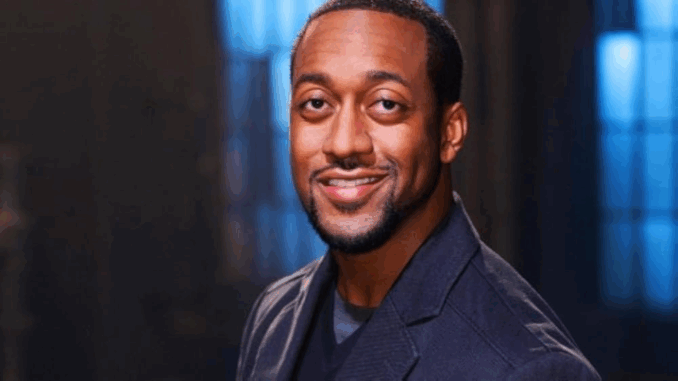
When television audiences first met Steve Urkel on Family Matters in 1989, no one could have predicted the seismic cultural shift he was about to cause. In oversized glasses, high-water pants, and with a voice pitched somewhere between earnest and eccentric, Urkel was meant to be a one-time guest star. Instead, thanks to Jaleel White’s uncanny comedic timing and heartwarming awkwardness, he became the show’s breakout star — and, for many, the very soul of the series.
“I didn’t know he would become the guy that everyone remembered. I just came in and did my job,” Jaleel once reflected in an interview with Entertainment Weekly.
The Unexpected Arrival
Before stepping into Urkel’s iconic suspenders, Jaleel White was already a familiar face in Hollywood. Born November 27, 1976, in Culver City, California, he began acting at age three, appearing in commercials and small TV roles. By the time Family Matters came calling, White had already auditioned for The Cosby Show and other high-profile projects.
Urkel’s first appearance came in the show’s twelfth episode, “Laura’s First Date.” Writers intended the character as a brief comedic foil, but something magical happened: audiences couldn’t get enough. Letters poured into ABC praising the quirky neighbor who could turn pratfalls into art. Soon, Urkel was promoted to series regular, reshaping the show’s entire dynamic.
“It was lightning in a bottle,” White later recalled. “Once the audience connected, there was no turning back.”
The Urkel Phenomenon
By the early ’90s, Steve Urkel had become a cultural icon. Kids dressed like him for Halloween, his catchphrase “Did I do that?” echoed in school hallways, and even his dance — the “Urkel” — went viral in a pre-internet world.
But what made Urkel resonate so deeply wasn’t just slapstick humor. It was heart. Beneath the clumsiness and nasal voice was a character who loved fiercely, forgave easily, and never gave up on himself — or on Laura Winslow.
“He never saw himself as a victim,” White said in a 2017 podcast. “That’s what I admired most about playing him.”
Balancing Act: Child Stardom and Growth
Being the face of a cultural juggernaut at 13 came with challenges. White navigated fame while finishing school, eventually attending UCLA and earning a degree in film and television. He remained grounded, thanks in part to his parents — his mother served as his manager, ensuring he didn’t lose himself in Hollywood’s glare.
Yet, the shadow of Urkel followed him long after Family Matters ended in 1998. Casting directors often struggled to see him as anyone but the lovable nerd. White embraced and resisted the typecasting in equal measure, taking on diverse roles in Dreamgirls (2006), CSI: Crime Scene Investigation, and voicing Sonic the Hedgehog in the animated series.

The Legacy of Laughter
Today, Jaleel White speaks about Urkel with a mix of gratitude and realism. The role gave him financial stability, global recognition, and the rare privilege of making people laugh week after week. But it also required him to redefine himself as an artist.
“Steve Urkel will always be part of me — a gift and a responsibility,” he told The Hollywood Reporter.
For fans, Family Matters remains a warm, familiar memory — a slice of Friday night comfort during ABC’s TGIF lineup. Watching Urkel barge through the Winslows’ front door still brings the same joy it did decades ago.
Why We Still Care
Part of Urkel’s timelessness comes from the values he embodied: perseverance, kindness, and authenticity. In a TV landscape now dominated by antiheroes and cynicism, Urkel’s unapologetic sincerity feels almost radical. For those who grew up with him, seeing Jaleel White on screen today is like running into an old friend — older, wiser, but still capable of that same infectious smile.
FAQs
Q1: Was Steve Urkel based on a real person?
Not directly. While Jaleel White drew inspiration from observing awkward classmates, Urkel was largely a creation of the Family Matters writing team, shaped by White’s improvisations.
Q2: Did Jaleel White enjoy playing Urkel?
Yes — though he admitted to feeling typecast at times, he has often expressed gratitude for the role and the joy it brought to audiences.
Q3: Is Jaleel White still acting?
Absolutely. He continues to appear in television, film, and voice acting projects, while also producing and writing.
Q4: What’s Jaleel White’s favorite Urkel moment?
In interviews, White has mentioned loving the physical comedy scenes — especially ones involving elaborate pratfalls or Urkel’s failed inventions.
Q5: Why does Steve Urkel remain relevant today?
Because his story — of embracing who you are, flaws and all — is timeless. In every pratfall and heartfelt confession, Urkel reminded us it was okay to be different.
